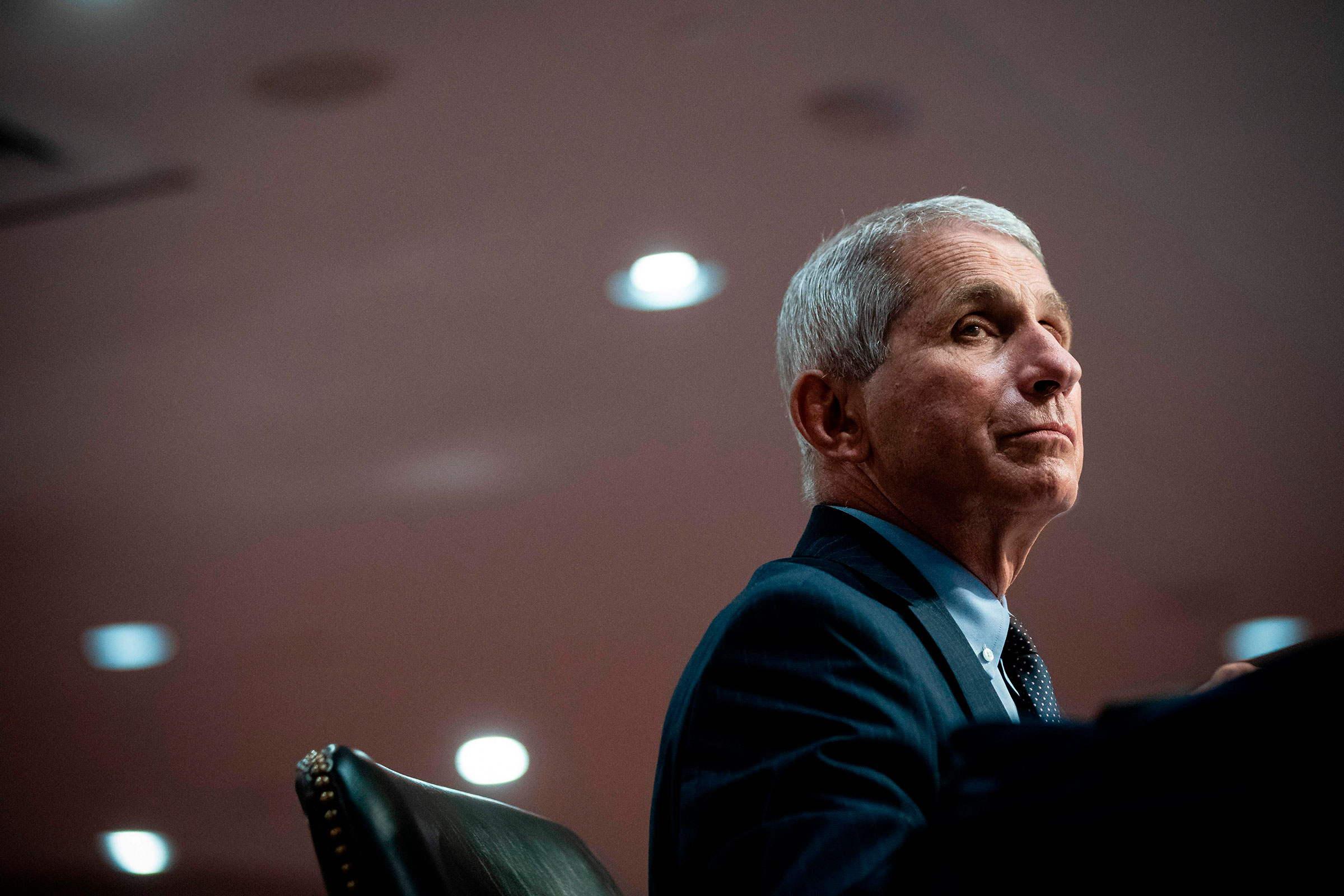
In a city famous for studied misdirection, cynical spin and outright lies, there’s one man who has refused to play the typical Washington games. Dr. Anthony Fauci, the director of the National Institute of Allergy and Infectious Diseases, has gained millions of Americans’ trust this year with his frank assessments of the coronavirus’ threat to the nation. But his boss, President Donald Trump, doesn’t love Fauci’s winning streak.
From the beginning of the coronavirus crisis, Fauci has been fairly transparent about the challenges his role comes with. He’s the nation’s top hand on infectious diseases, a post he has held since Ronald Reagan’s first term in the White House. From the early days of HIV/AIDS to SARS and Ebola, there has seldom been a global crisis summit where Fauci hasn’t had a reserved seat in the VIP box of government nerds.
Make sense of what matters in Washington. Sign up for the daily D.C. Brief newsletter.
At 79, he’s well past the Washington worry of needing this job so that he can get his next. He is notoriously honest and fastidiously apolitical. He doesn’t mind saying when the boss is wrong — regardless of party — but he never will give critics the zinger that makes it to the attack ad. Polls show people feel Fauci is twice as trustworthy as Trump, a man whose re-election bid is, at best, uncertain.
Unsurprisingly, the tensions between Fauci, the White House and the President, who wants a return to normalcy as soon as possible before November, have become legend in recent months in Washington. White House aides last weekend anonymously circulated a dossier on Fauci meant to discredit him that was as thin as the best filo dough. Top aides have re-upped memes against him. The President’s trade czar even published an op-ed against him.
Fauci recognizes the paradox of his circumstances. In an interview published this week in The New York Times, Fauci openly acknowledged that he has a choice between telling the truth or staying in Trump’s good graces. “Would you want me to say something that’s directly contrary to what the President is doing? That’s not helpful. Then all of a sudden you don’t hear from me for a while,” he said. For his part, the President continues to say he had a good relationship with Fauci before adding that the doctor made mistakes.
From the beginning, Fauci has showed little interest in providing cover for the Trump Administration when it has fumbled. As the President suggested that sunshine and bleach could provide an elixir to the virus, Fauci stuck to the science and didn’t kowtow to his boss. While White House aides stammered and rationalized, Fauci just cited the science, saying it’s unlikely that coronavirus will ever be eradicated.
Fauci, who signed on as a fed in 1968, knows the ropes. He understands the political knife-fighting that stains the halls of bureaucratic cafeterias. (Well, back when we had cafeterias.) And he, quite simply, doesn’t care. All he can do is correct the record when asked. “I can’t jump in front of the microphone and push him down,” he told Science magazine at the crisis’ start.
On Thursday, Fauci is set to open the Washington Nationals’ season, albeit in an empty stadium and with little of the cheer that traditionally accompanies lobbyists’ favorite day to flex their corporate-box muscle. For those outside the Beltway, the crack of the bat signals a return to what passes for normal. Inside the Beltway, Fauci’s minute on the mound screams that in some places, meritocracy still matters.
A version of this article first appeared in The DC Brief, TIME’s politics newsletter. Sign up here to get stories like this sent to your inbox every weekday.
More Must-Reads from TIME
- Cybersecurity Experts Are Sounding the Alarm on DOGE
- Meet the 2025 Women of the Year
- The Harsh Truth About Disability Inclusion
- Why Do More Young Adults Have Cancer?
- Colman Domingo Leads With Radical Love
- How to Get Better at Doing Things Alone
- Michelle Zauner Stares Down the Darkness
Write to Philip Elliott at philip.elliott@time.com